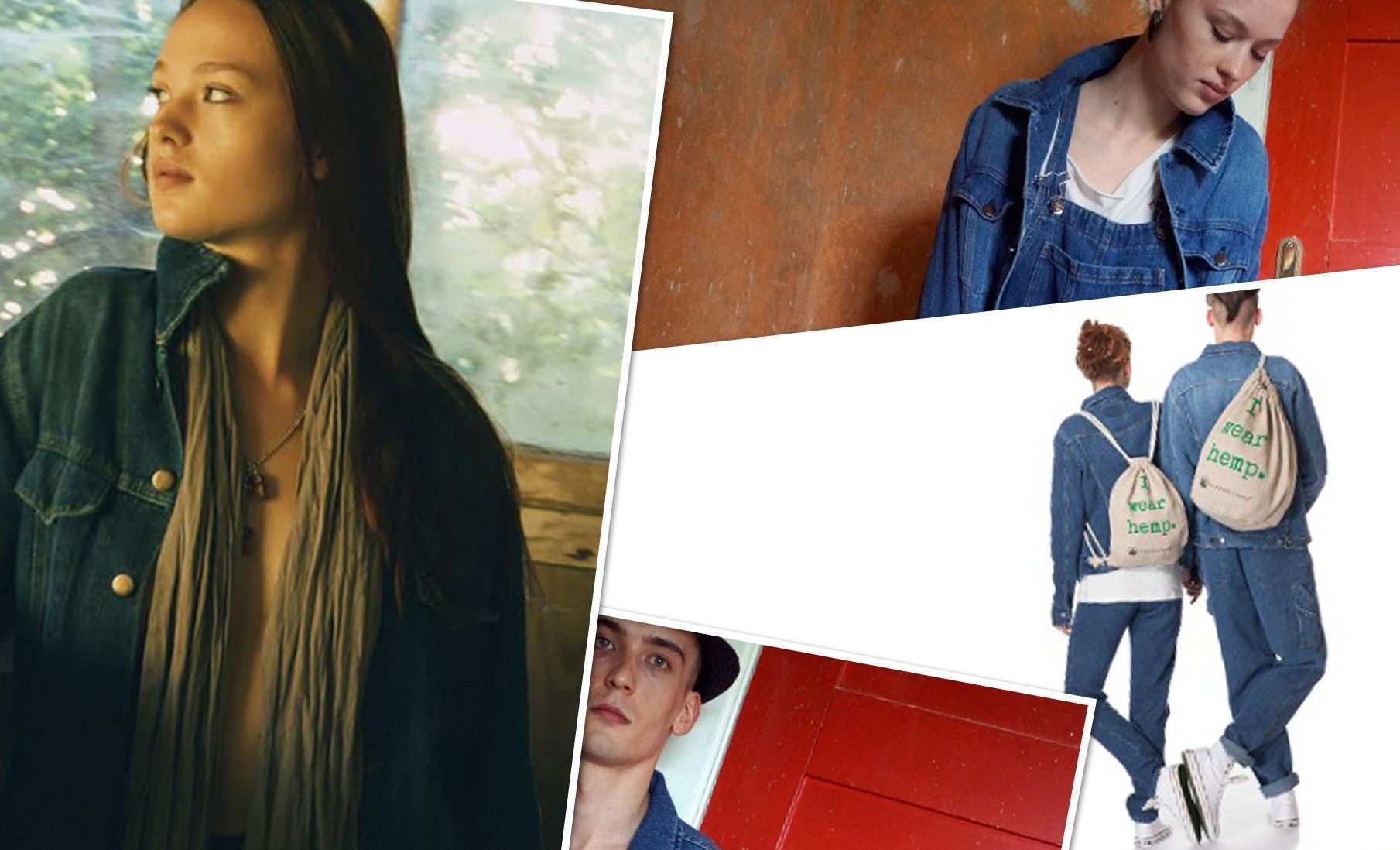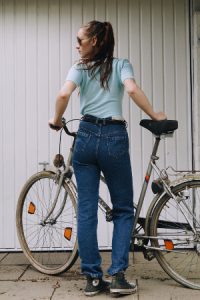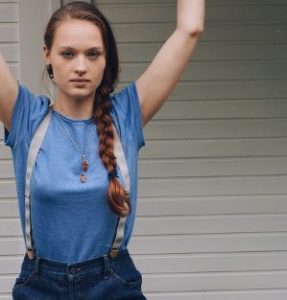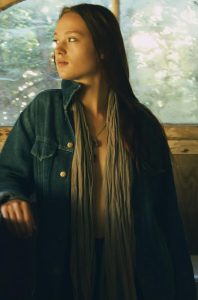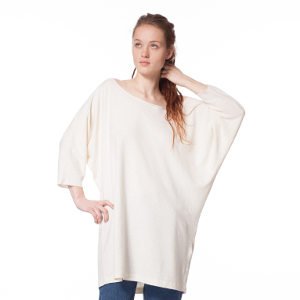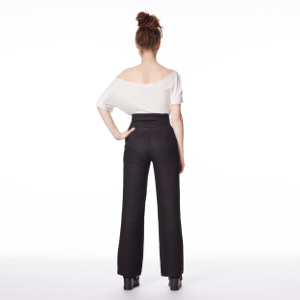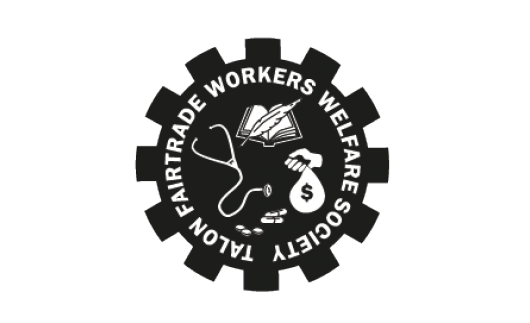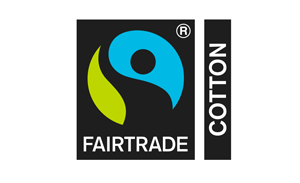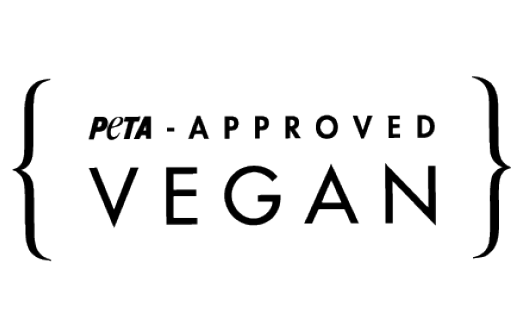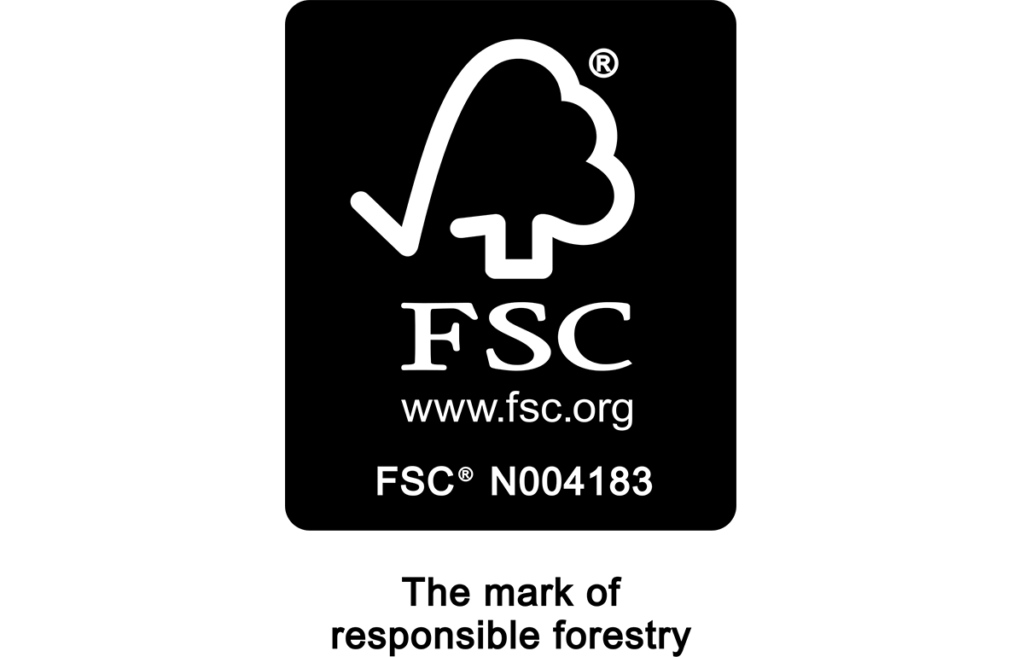BRANDS WE LIKE
Hemp clothing has some great benefits, and compared to cotton its ecological footprint is minimal. But hemp fabric remains a niche product with an image problem thanks to its controversial cousin, marijuana. In 2016 Barbara Trenti and Andreas Geier founded “The Bad Seeds Company”, determined to show just how much good there is to this “bad” plant. They pulled up roots from their home in South Tyrol, Italy and moved to the more cosmopolitan cities of Hamburg and Lübeck, Germany, where along with hemp they also integrate nettles, linen and recycled jeans into their pure natural fashion line.
First they thin out at the knees, and then they begin to wear away at the crotch, and if the “Destroyed Look” is not your thing you can throw away your favorite jeans after two or three years! So how about an alternative to good ole’ cotton?
“We give a ten-year guarantee on our hemp denim jeans, because they’ll last at least that long with normal wear!”,
pledges Barbara Trenti from Lübeck, Germany’s “The Bad Seeds Company”. Hemp fabric is practically indestructible. It’s resistant to abrasion and tearing, even when wet.
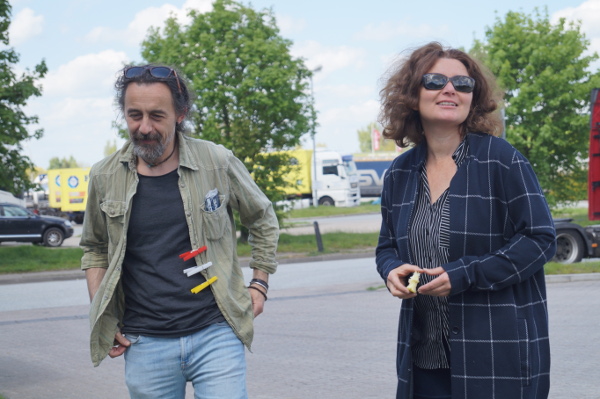
Today Barbara’s wearing the “Bad Denim Classic” jeans from the company she co-owns and runs. These unisex jeans sit medium-high at the waist and feature straight legs, and while the material has a similar knotty feel to linen, it’s still incredibly soft. Originally a biologist, Barbara loves the fact that “hemp fiber clothing warms you up in the winter and cools you down in the summer. It absorbs moisture well, and also quickly releases it again. And even with frequent wearing its natural antibacterial properties keep the fabric from smelling musty”. This kind of functionality is usually only available from chemically treated synthetic fiber clothing.
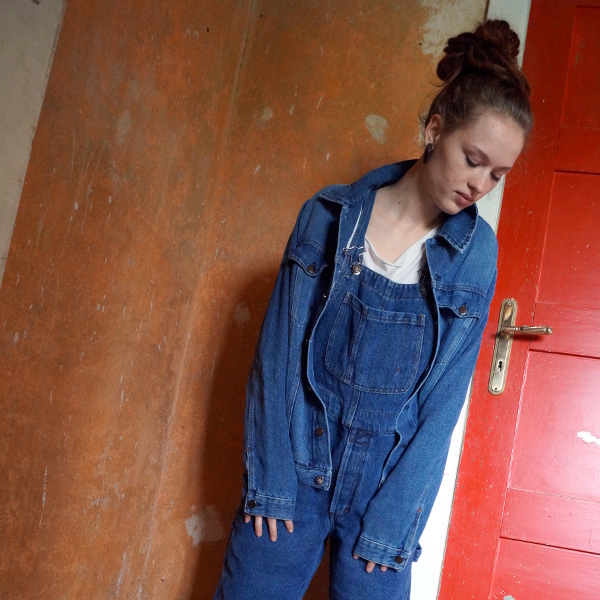
And hemp cultivation’s environmental record is equally impressive – Barbara’s husband and business partner Andreas Geier joins in:
“This plant thrives in virtually any kind of soil, and it grows like crazy. Four meters in 100 days is the norm!”,
he says and rolls up his sleeves. “Weeds don’t stand a chance with hemp because no light gets through to the ground. Hemp can also handle pests on its own, eliminating the need for pesticides. And it gets even better: Its taproots run very deep, meters deep, so the plant doesn’t need much surface water. That makes it a far more ecologically sound alternative to thirsty cotton!” Andreas’ passion for hemp fabric is obvious as he lists off more of its benefits in his charming Italian sing-song accent!
“Wonder Plant” or “Flora non grata”?
Barbara and Andreas are confident that this ancient raw material has a great future. They’re eager to use the clothing company they founded in 2016 to help generate a new boom for this ancient plant, which has been cultivated for some 10,000 years. Other allies who share their vision include brands like HempAge from the Bavarian town of Adelsdorf, Hoodlamb from Amsterdam and Uprise in Leuven, Belgium. And the name “Bad Seeds” is ironically aimed at confronting the image they want to lay to rest.
“Hemp is an outsider, hated as a dangerous drug plant, although industrial hemp is useless for marijuana or hashish production”,
Andreas complains.
The couple has learned that prejudices against hemp are as deep-rooted as the plant itself, particularly in rural regions like the Etschtal Valley, their former home.
“When I was having meetings in preparation for starting our company I still had dreadlocks down to my ass. When I explained our idea of making clothing from hemp I was immediately written off as a ‘pothead’, even if they didn’t say so directly”,
Andreas says, rolling his eyes. He’s chopped off his dreads in the meantime, but only because they bothered him!
Aside from this, start-ups also generally have a hard time in Italy. So the couple bid their Alpine home farewell and set off for the “open-minded, tolerant metropolis of Hamburg, where you can see every color in the rainbow”, says Andreas. They opened their office and warehouse some 70 kilometers away from Hamburg in the town of Lübeck and moved their family of two children and two dogs into their new home situated roughly in the middle between the two cities.
Cannabis is multitalent
Hemp fibers can be used to make a variety of textiles, even shoes (something for Ethletic, perhaps?), along with other things like ship rigging and rope, paper and insulation materials. The seeds can be used to season bread, muesli or chocolate, and hemp oil is ideal for cooking and cosmetics. So there is great potential for hemp, but the complicated cultivation regulations in Germany (see below)*, the EU and many other countries in the world nip this potential “in the bud”, so to speak.
The hemp used in “Bad Seeds” clothing is grown by small farmers in Russia, Bulgaria, Romania and Lithuania where the hemp cultivation tradition was never interrupted by legal bans and the harvest yield is immediately processed into fabric. After harvesting, the plants are “roasted” on the field or in water tanks to extract the lignin and pectin vegetable paste. Then they are dried and the bast fibers are mechanically removed from the stalk and, in oversimplified terms, the following steps then are washing, combing, spinning and weaving.
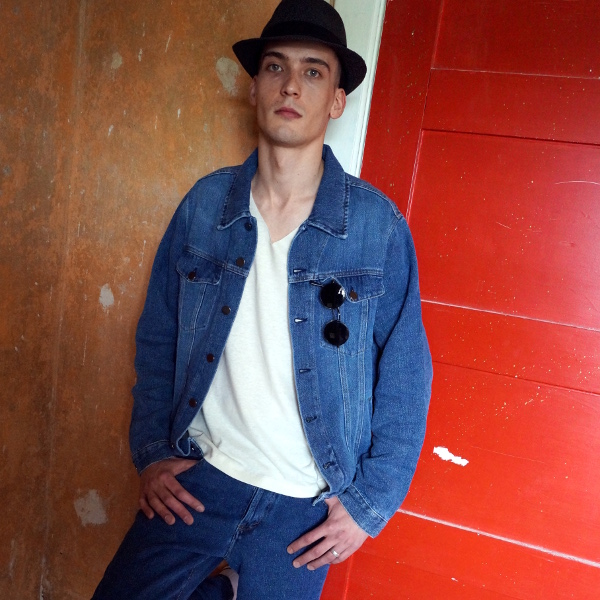
In addition to trousers and jackets made purely of hemp denim, “Bad Seeds” also features airy shirts made of fair traded hemp-&-bio-cotton jersey. An intriguing detail is the “Taglio Vivo”, the “living cut” at the sleeves and the collar where the fabric is simply cut without seams. Andreas and Barbara entrust the needlework to expert Italian seamstresses in Prato near Florence and in Bologna.
“In the beginning our seamstresses could often be heard cursing our ‘horrid’ hemp denim! They need very strong needles to get through the fabric”,
Barbara explains laughing. “Bad Seeds” also uses natural nettle fibers, yet another plant with a reputation problem, to make silky, shimmering long cardigans, as well as linen for casual summer trousers.
The company also has a second collection line called “2nd Life”. “Bad Seeds” takes shredded old cotton jeans and gives them a new life as knitted pullovers and loop shawls. The production runs are small, and the designs and colors are discreet. Barbara tells us, “In the future we want the collection to grow significantly and become more extroverted and colorful”.
It all started with sheep
Barbara and Andreas already had experience with recycling back in South Tyrol. But let’s start from the beginning: In the mid-2000s Barbara was working as a biology and math teacher, while Andreas earned his living as a musician, songwriter and fruit-&-veg broker for supermarkets. One fall afternoon they took part in a traditional sheep drive, helping to herd thousands of sheep over the Swiss mountains back down into the valleys of South Tyrol. When they wondered out loud just how many sweaters could be made from all that wool the sobering answer came from an old farmer: “None. All the wool will be burned”.
Although they were aware that the sheep were kept for milk and meat, they had no idea about this enormous waste. So they decided to do something about it. They procured a portion of the wool from some of the farmers, had it carded and spun and dyed with herbs, and then they opened a knitting café called “Geena’s own” in the town of Laives, taking Barbara’s nickname of “Geena” as their inspiration. They sold sweaters, traditional Tyrolean “Janker” jackets, ponchos and socks, and their bestseller, balls of wool yarn people could use to knit themselves. “Our knitters, mostly women, would meet up in the café early in the morning to knit and chat together, and in the evenings we hosted a vibrant cultural program with things like readings and concerts”, Barbara tells us, a little wistfully.
While Barbara’s not so fond of mixing the topics of clothing and music, we can still divulge that she and Andreas also make Folk, Rock and Blues music together in their band, “Geena B. & The Homeopatic Orchestra”. Back in the café, they later added clothing upcycling to their knitted articles. The concept involved customers bringing old dresses to the café, which would then be passed on to seamstresses to create something new. But in the end this business model didn’t pay off. Andreas explains,
“Even idealists have to pay their rent. We needed a new idea with a real prospect for success. And a friend from the Ulten Valley who grew hemp for textiles and construction material provided it for us”.
And if there are enough open-minded customers in Lübeck, Hamburg and the surrounding area who don’t immediately associate hemp with joints, but are prepared instead to think of a wonderfully soft, durable and unbeatable ecologically sound natural material, then Barbara and Andreas should soon reap the success they so richly deserve!
* Hemp cultivation was banned in Germany between 1982 and 1996. That’s a long time for plant research and the processing industry to lie more or less dormant. There’s no real hemp textile added-value chain here even today. Since 1996 farmers (not private individuals) have been permitted to cultivate industrial hemp, but only under strict regulations and controls. At present some 50 varieties are permitted with a maximum THC content of up to 0.2 percent. In comparison, medical or recreational hemp contains some 15 to 20 percent THC. According to 2016 statistics from Germany’s Federal Ministry for Food and Agriculture, 188 German farms cultivated 1,472 hectares of industrial hemp, primarily for use as construction material. This is roughly the same amount as the year it was legalized. For a comparison that’s not ideal but at least insightful, consider that German corn cultivation grew in 2016 to 2.5 million hectares.

